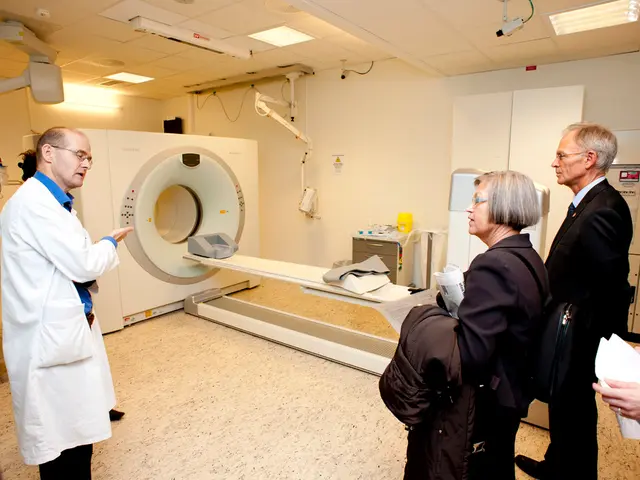Immunotherapy Outcomes Prediction: Scientists Discover Methods to Forecast Responses
Each year, the battle against cancer intensifies with the development of novel treatment options. One such innovative approach is immunotherapy, which harnesses the body's immune system to combat the disease. However, its effectiveness varies considerably among individuals and cancer types. Researchers from Johns Hopkins University have made a significant breakthrough in recognizing a specific subset of mutations in cancer tumors that may indicate a tumor's susceptibility to immunotherapy.
The researchers' findings, published in the journal Nature Medicine, are expected to aid doctors in more accurately selecting patients for immunotherapy and predicting treatment outcomes more accurately. Currently, the total number of mutations in a tumor, known as tumor mutation burden (TMB), is used to predict immunotherapy response. However, this study offers a more refined approach by focusing on persistent mutations, which remain consistent throughout cancer development.
Persistent mutations keep the cancer cells visible to the immune system, enhancing the response to immunotherapy. These mutations are always present in cancer cells and may trigger a continuous immune response against the cancer cells, leading to sustainable immunologic tumor control and extended survival.
"Persistent mutations more optimally identify tumors that are more likely to respond to immune checkpoint blockade compared to the overall tumor mutation burden," explained Dr. Valsamo Anagnostou, a senior author of the study and associate professor of oncology at Johns Hopkins. She added that persistent mutation load may help clinicians more accurately select patients for clinical trials of new immunotherapies or predict patient outcomes with standard-of-care immune checkpoint blockade.
The study's implications for cancer patients are profound, potentially allowing high-throughput, next-generation sequencing techniques to categorize patients based on their likelihood of responding to immunotherapy. This could revolutionize the treatment plans for advanced cancer patients by personalizing immunotherapy approaches.
Key takeaways from related research indicate that persistent mutations can serve as biomarkers for favorable outcomes in immune checkpoint therapies across various cancers. They can also affect the tumor microenvironment and generate neoantigens, which are substances that the immune system can recognize as foreign and thus target cancer cells.
In the not-too-distant future, patients' mutational spectra may be analyzed to predict their likelihood of responding to immunotherapy or benefiting from it in disease-free patients after definitive surgery. Ultimately, these advances could lead to the development of personalized therapies tailored to individual patients.
- The study conducted by researchers from Johns Hopkins University suggests that persistent mutations in cancer cells may optimally identify tumors that are more likely to respond to immunotherapy, such as immune checkpoint blockade.
- The discovery of persistent mutations as biomarkers can help clinicians more accurately select patients for clinical trials of new immunotherapies or predict patient outcomes with standard-of-care immune checkpoint blockade.
- The advancements in recognizing persistent mutations could pave the way for personalized therapies in the future, where patients' mutational spectra can be analyzed to predict their responsiveness to immunotherapy or benefit from it in disease-free patients after surgery.




